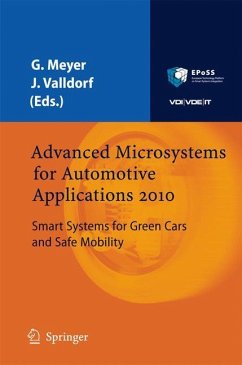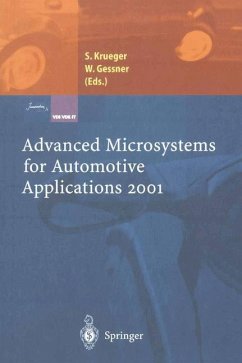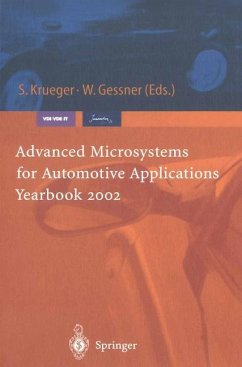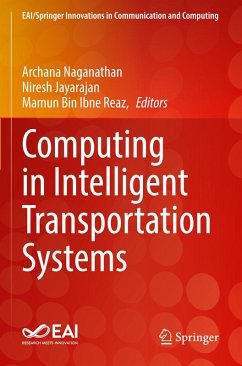
Advanced Microsystems for Automotive Applications 2010
Smart Systems for Green Cars and Safe Mobility
Herausgegeben: Meyer, Gereon; Valldorf, Jürgen
Versandkostenfrei!
Versandfertig in 6-10 Tagen
125,99 €
inkl. MwSt.

PAYBACK Punkte
63 °P sammeln!
The automobile of the future has to meet two primary requirements: the super-efficient use of energy and power and the ultra-safe transportation of people and goods. Both features are increasingly enabled by smart, adaptive and context aware information and communication technologies (ICT), elect- cal or electronic components and systems rather than solely by the mecha- cal means of classic automotive engineering. The most advanced example of this trend is the electrified vehicle combining a full electric powertrain with completely electronic controls like smart power and energy managers, ste-...
The automobile of the future has to meet two primary requirements: the super-efficient use of energy and power and the ultra-safe transportation of people and goods. Both features are increasingly enabled by smart, adaptive and context aware information and communication technologies (ICT), elect- cal or electronic components and systems rather than solely by the mecha- cal means of classic automotive engineering. The most advanced example of this trend is the electrified vehicle combining a full electric powertrain with completely electronic controls like smart power and energy managers, ste- by-wire technologies and intelligent networking capabilities allowing all p- viders and consumers of energy to work in efficient synergy. In the course of this year the first series production electric vehicles will finally come into the market. Automakers - unsure if electric vehicles would really sell - have long time been hesitant to make the necessary changes of their product portfolios. In the coincidence of economic crisis and growing concerns about global warming and energy security companies and public authorities jointly succeeded to overcome many obstacles on the path towards electrifi- tion.














